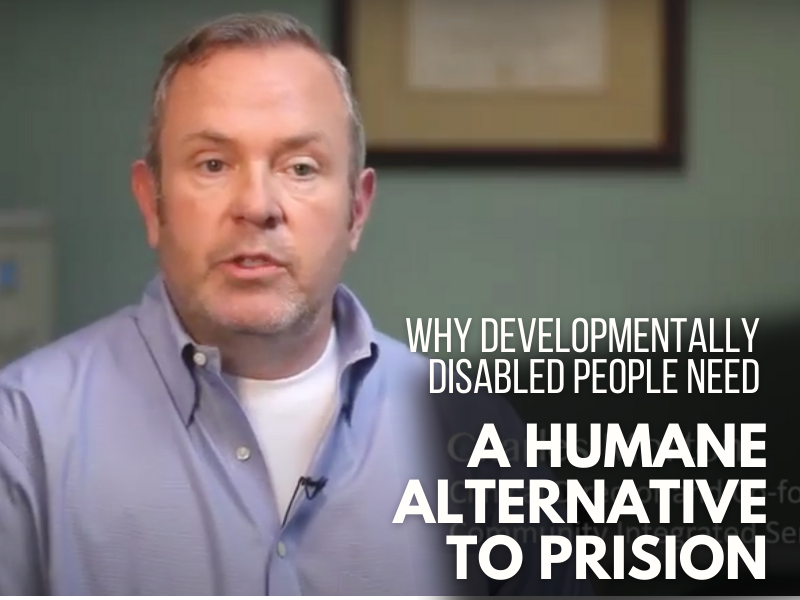If you ask a hundred people how to handle Americans convicted of crimes, you may get a hundred different answers. Opinions on how, when, and why to incarcerate vary widely, but few advocate for the incarceration of people with developmental disabilities. Nevertheless, more than half a million people with intellectual and developmental disabilities are currently behind bars.
In a 2021 report, the Bureau of Justice Statistics found that almost 1 in 4 inmates surveyed reported having a cognitive disability, such as difficulty remembering or making decisions.
Other reports note that correctional facilities have become the largest provider of mental health services in the country.
Why Are so Many Developmentally and Intellectually Disabled People Behind Bars?
In the past, individuals with intellectual disabilities or mental health conditions were committed to asylums or institutions. Civil rights movements resulted in the dissolution of these institutions in favor of including disabled individuals in schools and communities. For many people, this was a tremendous improvement.
While some welcomed this approach, studies also revealed that developmentally disabled individuals were now more likely to experience a range of conditions that significantly increased their likelihood of committing a crime, including homelessness, poverty, and abuse. And troubled individuals with intellectual disabilities were often sentenced to time behind bars, in part because no other alternatives existed.
Ill-Equipped for Institutional Incarceration
When people with intellectual or developmental disabilities are sentenced to conventional prisons, it compounds existing issues. They may be ill-equipped to defend themselves against violent inmates or can be exceptionally vulnerable to exploitation.
And because these folks don’t have the skills to integrate into society at large, recidivism is common. Many have never learned appropriate coping mechanisms. They may not know how to make good decisions or understand how to interact responsibly. Lacking critical social and reasoning skills, developmentally disabled inmates are challenging to safely manage and require more resources.
New Approaches Offer New Solutions
Some states, including Washington State, have begun community-based living approaches that offer long-term payoffs for offenders, correctional facilities, and society at large. The Washington State Developmental Disabilities Administration (DDA) Community Protection Program (CPP) was established to provide a structured, therapeutic environment for developmentally disabled offenders or clients with community protection issues. CPPs are a way to allow clients to live safely and successfully in the community without re-offending while minimizing the risk to public safety.
As a state CPP, CIS works in concert with corrections, Developmental Disabilities Administration, and treatment providers to identify risk levels. While some clients transform in our supportive environment, others continue to struggle with violence and are provided additional structure and support. But each CIS client lives in a safe environment, free from the threat of violence, intimidation, or exploitation.
With coaching, counseling, teaching, and constant supervision, many of our clients thrive. They learn how to cope with situations productively. They have a home, learn how to take care of themselves, live in a safe and supportive environment, develop healthy relationships, and are able to become gainfully employed.
Agencies like Community Integrated Services may play a significant role in the future of prison reform – providing a safe alternative to incarceration with a focus on protecting the community. Not only do CPPs take intellectually disabled people out of harm’s way (and protect others from being harmed), but organizations like CIS also teach life skills the individual has yet to master. As a result, these programs can help reduce the threat of repeat offenses or recidivism.
I hope that the twenty-first century provides a better path forward, with organizations like CIS working with the state and correctional institutions to offer compassionate care for some of our nation’s most troubled populations. As other states study and emulate the successes of Washington State, the future looks bright.

